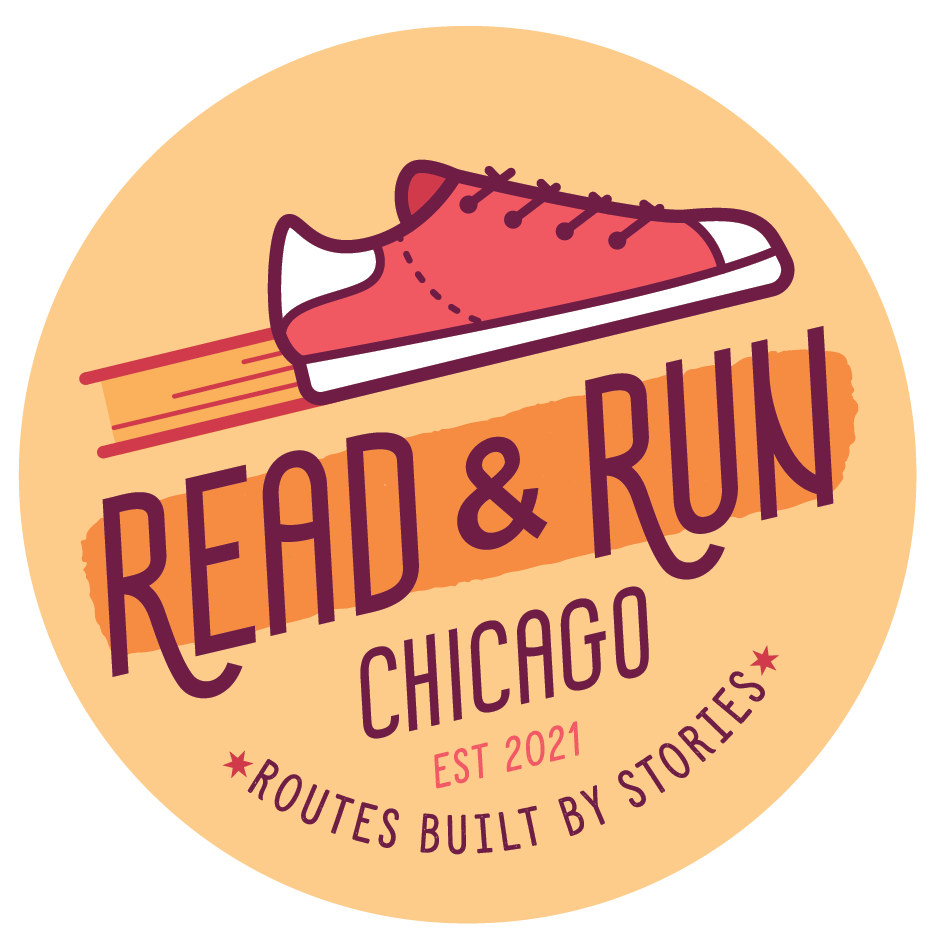What’s So Great About the Chicago River?
Read & Run Chicago guide Chelsey Grassfield designed a six-part running series along the Chicago River inspired by Libby Hill’s book, The Chicago River: a Natural and Unnatural History. Throughout the series, Grassfield has used her expertise of the river to teach runners about the infrastructure and engineering of the river, the environmental impact, and community-based advocacy for restoration, conservation, and recreation.
In this interview, the founder of Read & Run Chicago, Allison Yates, asked Grassfield questions about what she loves most about the river, what she wishes Chicagoans knew about the river, and more.
Enjoying a field of wild flowers along the Chicago River in July 2022.
Allison: What do you think of when you think of the Chicago river?
Chelsey: I can’t help but think what everyone thinks: its infamous reversal, the horrors of Bubbly Creek, dying the river green on St. Patrick’s Day, the Riverwalk, architecture tours. I also think about all its potential to be a connector between so many neighborhoods throughout the city and a connector for urbanites and nature.
A: Why do you like river?
C: I like the river because in many places it is and in others it has the potential to be a place of natural beauty in an otherwise highly urbanized environment. Since moving to Chicago I’ve become fascinated with urban wildlife, the idea that nature can and should thrive alongside us in our densest cities. The river is this amazing opportunity to provide both people and wildlife a place in the city for thriving. I also like how scrappy it is; it represents the City of Chicago itself. It’s been dredged and manipulated and reshaped, been a dumping ground for the industries that brought great wealth (to a select few) to the city and it’s also bounced back and been embraced and seen as an asset to the city.
A: What’s the most interesting story associated with the Chicago River?
C: I think Bubbly Creek is the best known. I swear when I went down there summer 2021 the river was still bubbling the offal dumped into the river from meat packing plants. It was thick enough at one point for chickens to stand on. And we all know how it was featured in The Jungle, but that book was about so much more; I picked it up thinking it would be all about the meat packing industry but surprised to learn that wasn’t its main message.
A: What’s the biggest misconception?
C: That the water is just as disgusting as it was 100 years ago. Don’t get me wrong, there are still times when the water quality is poor enough that you should not be in contact with it, but it’s come a long way. I long for a day when people don’t recoil when I talk about kayaking or swimming in the river, but first people’s perception of the river needs to change. If we continue to see it as gross and unclean, then there will be no motivation on the part of government agencies and stakeholders to continue cleaning it up and making it clean enough for recreation. We have to envision its future and fight for that, not drag its past into the present.
During the tour of the North Branch in July 2022, runners heard from Jeff Daube about River Park’s history as a theme park-turned-outdoor haven.
A: How do you wish people interacted with the river?
I wish people would realize all the different ways you can interact with it. You can passively enjoy it: sitting and watching it, fishing in it; you can enjoy being along it: running, walking or biking on many of the existing trails; you can get on it: rowing, kayaking, canoeing, pool floaty(!); and you can, on most days, swim in it.
Get creative or think outside the box. I cannot tell you how amazing it is to be on that water in a kayak (or a floaty). I’ve done these activities on the main stem when giant tour boats are passing by and I’ve done it on quieter stretches where all I can see are natural banks with lots of plant life.
Just please be safe when doing any of these activities! Check the water quality and be sure you’re in an area safe to do these things (no swimming downtown into boat traffic, for example).
A: What’s something about the river that most Chicagoans don’t realize?
C: Chicago wouldn’t have existed without the river: Libby Hill says “Chicago owes its existence to the Chicago River. Had the convenient but capricious portage between Lake Michigan and the Des Plaines River not been such a short way up the river, so attractively, so provocatively close, Chicago never would have developed into the nation’s central transshipment point.” The two French explorers found the river and saw its potential for connecting this area to the rest of the world and the rest was history.






